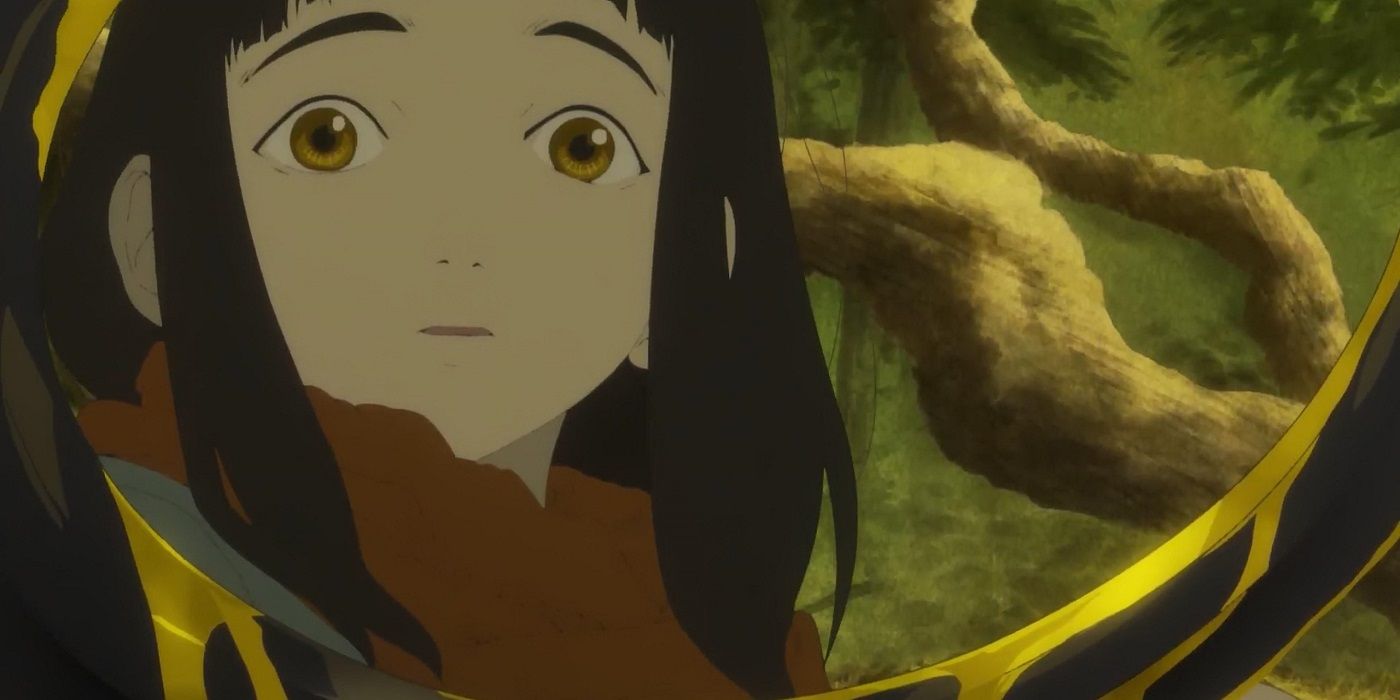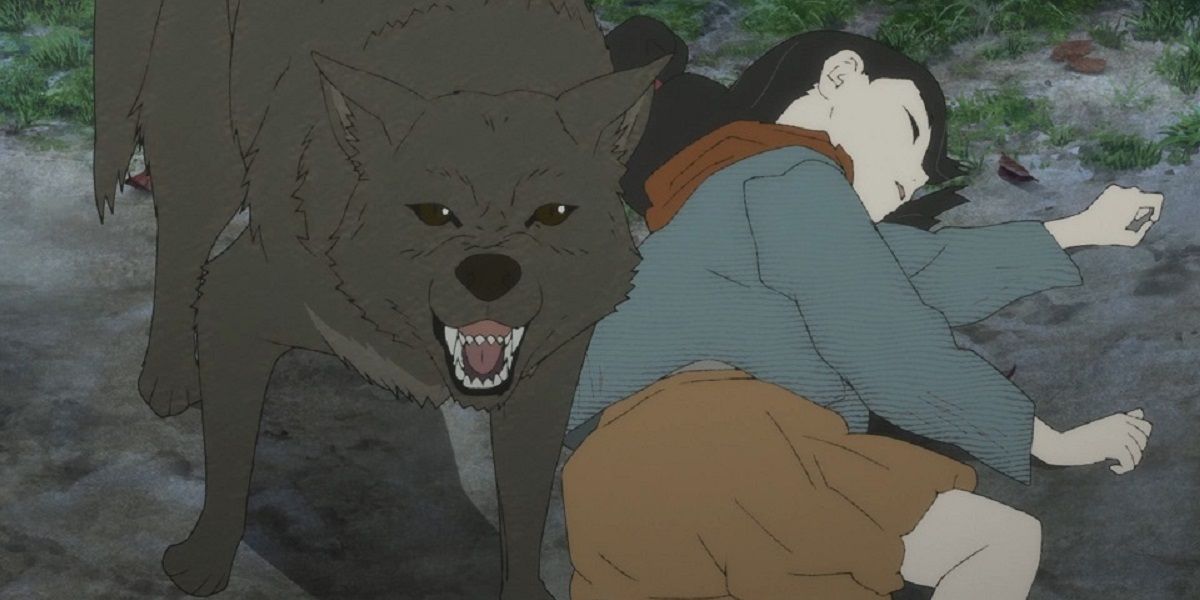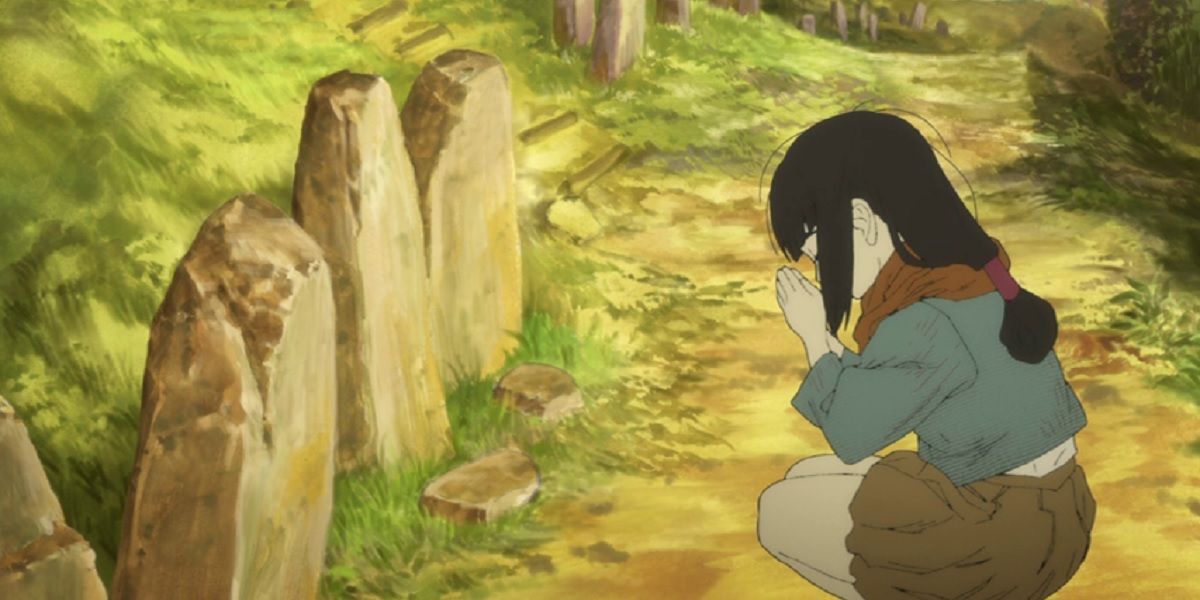Of all the new anime currently airing in the Winter 2023 season, hands-down one of the best of them is The Fire Hunter (also known by its Japanese name, Hikari no Ou). Right out of the gate, the show is notable for a multitude of reasons: it’s based on a series of literary novels rather than on a manga, game or light novel series; it’s a fantasy title but in no way an isekai; and its story and characters are entirely free of the usual kinds of tropes and stereotypes that seem inherently "anime" in scope. Complete with a distinctive plot, cast and setting, Fire Hunter easily stands out from among the crowd.
However, audiences may not be flocking to watch this anime, and not only because it lacks the types of codes and conventions that fans of the medium are so used to seeing, regardless of genre. Fire Hunter’s strength is that it tells a unique and compelling narrative with exquisite worldbuilding and deliberately slow, tense pacing. Nonetheless, said narrative is also uniquely depressing, forming a series that may be appreciated as an art form but isn’t necessarily enjoyable as a viewing experience.
What Is The Fire Hunter/Hikari no Ou About and What Makes It a Good Anime?
Based on a novel series written by Hinata Rieko and illustrated by Yamada Akihiro (the latter of The Twelve Kingdoms and Record of Lodoss War fame), The Fire Hunter takes place in the distant future, in a time where humanity has lost the ability to make or even look at natural fire without bursting into flame. There are few major settlements, as the world has become enveloped by dark forests in which monstrous Flame Fiends lurk, preying on any humans who dare to cross their path. Only the elite Fire Hunters are equipped to fight these spirits, harvesting their blood to create a new kind of fire that people can use. After witnessing a Fire Hunter’s death at the hands of a Flame Fiend, 11-year-old Touko is forced to leave her village and travel to the capital to return the hunter’s tools and hound to his presumed home.
The Fire Hunter doesn’t just set itself apart by dint of being a non-isekai fantasy anime that steers clear of the common plot and character tropes associated with the medium. The story itself is exceptional enough to stand out on its own, and its main cast members come across as both sympathetic and realistic, with clear motivations that make sense in the universe they inhabit. The worldbuilding in particular merits attention; while many anime struggle to introduce fantasy or sci-fi settings in a way that feels natural and well-paced, Fire Hunter rarely gets bogged down by awkward exposition or unnatural-sounding dialogue, and it maintains a slow but steady pace that complements its tone and highly detailed environment.
What Makes The Fire Hunter/Hikari no Ou a Less Than Enjoyable Watch?
While The Fire Hunter may be a one-of-a-kind anime series, especially in a medium currently saturated by cliché-ridden isekai titles and weak or derivative rom-coms, this doesn’t necessarily make its story a pleasure to see play out. Fire Hunter isn’t difficult to watch because of any over-the-top violence or other explicit or sensationalist content -- on the contrary, the show’s rather restrained tone and style help set it apart from the likes of the overrated Attack on Titan and Chainsaw Man. However, its atmosphere is one of inherent pessimism, making any violence and gore a secondary issue in terms of creating a depressing mood.
The very nature of Fire Hunter’s setting means its characters are preoccupied first and foremost with survival. Unlike other fantasy titles that tend to set up some kind of main villain, Fire Hunter has no clear human antagonist as such, yet its main protagonist -- an 11-year-old girl whose only crime was being in the wrong place at the wrong time -- is shown little to no sympathy by most others. This is a world in which people either survive based on their physical strength and mental fortitude or live and die in abject poverty and misery; there is little leftover energy or external resources to spend on compassion. Indeed, those who cannot contribute to society are commonly abandoned, exiled or sold by their family members or villages, such as 'cursed' women being married off to lift the bad luck that apparently causes bamboo not to grow or clay to be of poor quality.
Needless to say, such grim surroundings and harsh conditions that breed equally harsh characters can make for a somewhat emotionally taxing viewer experience. Especially for anime fans who prefer to tune in to their favorite medium as a form of escapism or to relax after a long day, or even for those who watch to get a rush from beloved action titles, The Fire Hunter’s bleak outlook and pervasive gloominess will perhaps not be to their taste.



